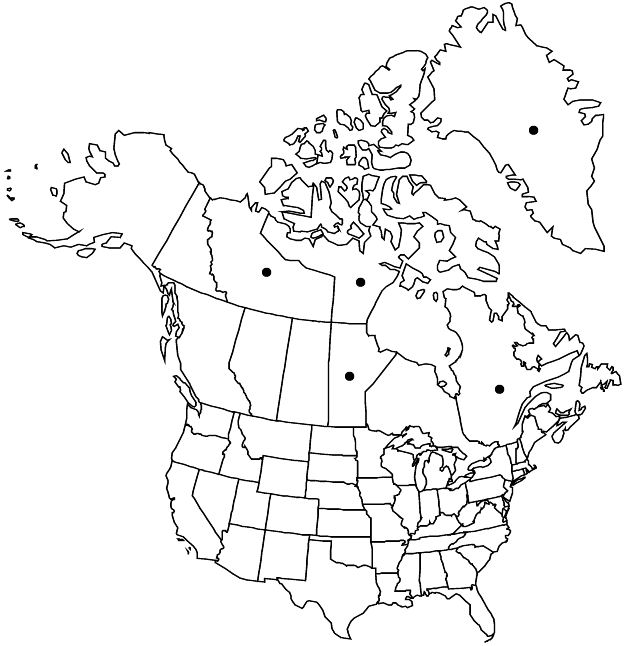Difference between revisions of "Potentilla arenosa subsp. chamissonis"
J. Bot. Res. Inst. Texas 1: 813. 2007.
FNA>Volume Importer |
imported>Volume Importer |
||
| (2 intermediate revisions by 2 users not shown) | |||
| Line 62: | Line 62: | ||
|publication year=2007 | |publication year=2007 | ||
|special status= | |special status= | ||
| − | |source xml=https:// | + | |source xml=https://bitbucket.org/aafc-mbb/fna-data-curation/src/2e0870ddd59836b60bcf96646a41e87ea5a5943a/coarse_grained_fna_xml/V9/V9_303.xml |
|subfamily=Rosaceae subfam. Rosoideae | |subfamily=Rosaceae subfam. Rosoideae | ||
|tribe=Rosaceae tribe Potentilleae | |tribe=Rosaceae tribe Potentilleae | ||
Latest revision as of 22:55, 5 November 2020
Petioles with only or almost only long verrucose hairs, sometimes mixed with sparse short and/or soft crisped hairs.
Phenology: Flowering summer.
Habitat: Cliffs, dry heath tundra, ridge tops
Elevation: 0–1000 m
Distribution

Greenland, Man., N.W.T., Nunavut, Que., Europe.
Discussion
Reports of subsp. chamissonis from Alaska or Yukon (E. Hultén 1968) have not been confirmed; they are unlikely.
The current use of subsp. chamissonis differs from that of J. Soják (1989, pers. comm.), who included Potentilla chamissonis among the hybrids of P. arenosa and P. nivea. He instead provided the combination P. nivea var. nipharga (Rydberg) Soják for the taxon currently under discussion, using P. nivea in its unconserved sense. He also noted, however, that P. nipharga Rydberg might instead be based on an unstabilized hybrid between P. arenosa and P. crebridens or P. nivea. The latter interpretation is provisionally accepted here; if treated as conspecific with P. arenosa, then P. nipharga would have priority. The name has traditionally been applied in Greenland and northeastern Canada; the type from the Mackenzie River does not conform with how the name has been used.
Selected References
None.